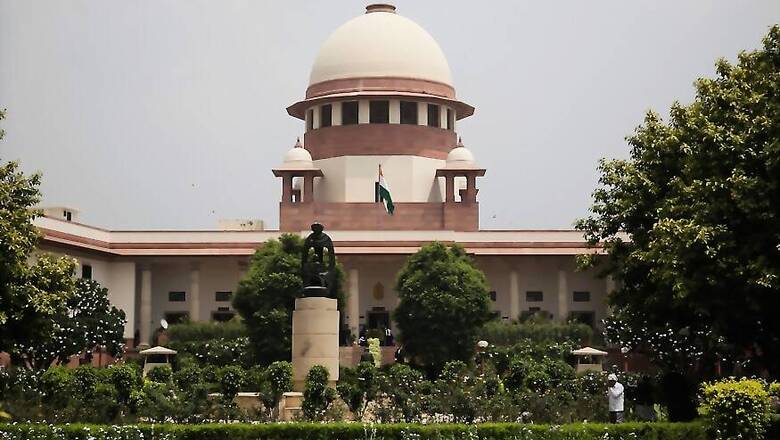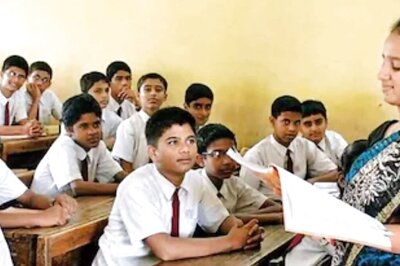
views
New Delhi: There is no fundamental right to claim reservation in public jobs and no court can order a state government to provide for reservation to SC/STs, the Supreme Court has ruled.
In a significant judgment, the top court has ruled that it is within absolute discretion of a state government to decide whether or not to provide for reservation or reservation in promotions, and that there is no obligation on the states to mandatorily do so.
It clarified that a state government is bound to collect data regarding inadequacy of representation of Scheduled Castes and Scheduled Tribes in Government services when it wants to provide reservation but otherwise.
“The State Government is not bound to make reservations. There is no fundamental right which inheres in an individual to claim reservation in promotions. No mandamus can be issued by the Court directing the State Government to provide reservations,” held a bench of Justices L Nageswara Rao and Hemant Gupta on Friday, as it relied upon a body of Supreme Court judgments on this subject.
The court said provisions in Article 16 for providing reservation in favour of SC/STs are enabling provisions, vesting a discretion on the state government.
But a state government cannot be directed to provide reservations for appointment in public posts, said the bench, adding “the State is not bound to make reservation for Scheduled Castes and Scheduled Tribes in matters of promotions”.
However, if they wish to exercise their discretion and make such provision, the State has to collect quantifiable data showing inadequacy of representation of that class in public services since such statistics will have to be placed before a court when a challenge is laid to the reservation policies, according to the bench.
It further said the inadequacy of representation of SC/STs is a matter within the subjective satisfaction of the State, subject to limited scope of judicial scrutiny because “it is for the State Government to decide whether reservations are required in the matter of appointment and promotions to public posts”.
About the collection of relevant data regarding representation of SC/STs in public jobs, the apex court underlined that the collection of such data is a pre-requisite for providing reservations, and is not required when the State Government decided not to provide reservations.
“Not being bound to provide reservations in promotions, the State is not required to justify its decision on the basis of quantifiable data, showing that there is adequate representation of members of the Scheduled Castes and Schedules Tribes in State services. Even if the under-representation of Scheduled Castes and Schedules Tribes in public services is brought to the notice of this Court, no mandamus can be issued by this Court to the State Government to provide reservation,” further held the bench.
The bench made these important declarations while dealing with a bunch of cases relating to reservations to SCs and STs in promotions in the posts of Assistant Engineer (Civil) in Public Works Department, Government of Uttarakhand.
While the Uttarakhand government decided not to give reservations, the High Court directed the state to first collect quantifiable data regarding representation of SCs/STs and then take a call.
Another direction was issued that all future vacancies that are to be filled up by promotion in the posts of assistant engineer, should only be from the members of SCs and STs.
The bench held both the directions to be unjustifiable in light of the law laid down by the top court and set them aside.




















Comments
0 comment